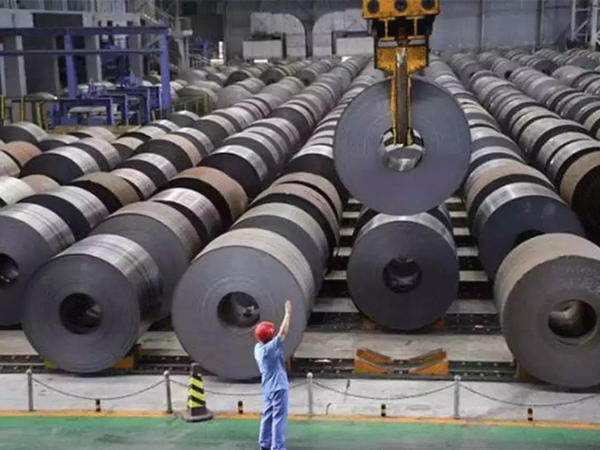India's Steel Dreams: Navigating Challenges and Opportunities
With imports surging by 20%, India's steel industry faces increased foreign competition. A significant investment by Baldota Group in Karnataka seeks to bolster domestic capability and regional growth. The new integrated steel plant is pivotal in reducing import reliance, creating jobs, and aligning with the Make in India initiative.

- Country:
- India
The Indian steel sector finds itself at a pivotal point as imports of finished steel have risen by 20% to 8.29 million tonnes within the fiscal year from April to January. This surge in imports is putting pressure on domestic producers, who are grappling with shrinking profit margins and intensified competition from international market players.
Significantly, China, Japan, and South Korea account for 79% of these imports, with China reaching an eight-year import high. This dependency on foreign markets poses a risk to India's industrial stability, underscoring the need for an expansion in domestic capacity to safeguard the sector from potential setbacks that could hinder national growth.
To meet burgeoning steel demand and curb import reliance, India is tasked with adding 100 million tonnes of new capacity by 2030, complementing the existing 180 million tonnes. Contributing to this effort, the Baldota Group has initiated a major project with a Rs54,000 crore integrated steel plant in Koppal, Karnataka, which aims to account for 10.50 million tonnes, or 10%, of this target.
As India's second-largest integrated steel plant, this facility enhances the domestic production landscape by managing the entire value chain from raw materials to finished products. This project not only supports India's steel strategy but also boosts development in the mineral-rich yet underdeveloped Kalyana Karnataka region, recognized under Article 371(J) due to historical development gaps.
The investment will spur economic growth, generate both direct and indirect employment, and offer skill development and entrepreneurship opportunities, potentially stemming the migration of North Karnataka's engineering talent to larger cities. Moreover, industrialization can provide stability for a region often affected by droughts and limited agrarian livelihood prospects.
Aligning with the Make in India initiative, Baldota's project could act as a beacon against the influx of low-cost Chinese imports, protecting India's domestic mills. The spokesperson for Baldota Group emphasized the goal of achieving sustainable growth and regional prosperity, noting that integrated steel plants are crucial for forging a self-sufficient India and empowering historically overlooked regions.
(With inputs from agencies.)
ALSO READ
Controversy Erupts Over Religious-Based Reservations in Karnataka
In Karnataka, everything from electricity to milk is getting expensive under Congress government: PM Modi at Haryana event.
BJP Criticizes Karnataka Caste Census, Calls for Fresh Survey
Surjewala Criticizes PM Modi's Remarks on Karnataka's Reservation Policies
Tariffs and Tribulations: Trump's Push for Domestic Production










